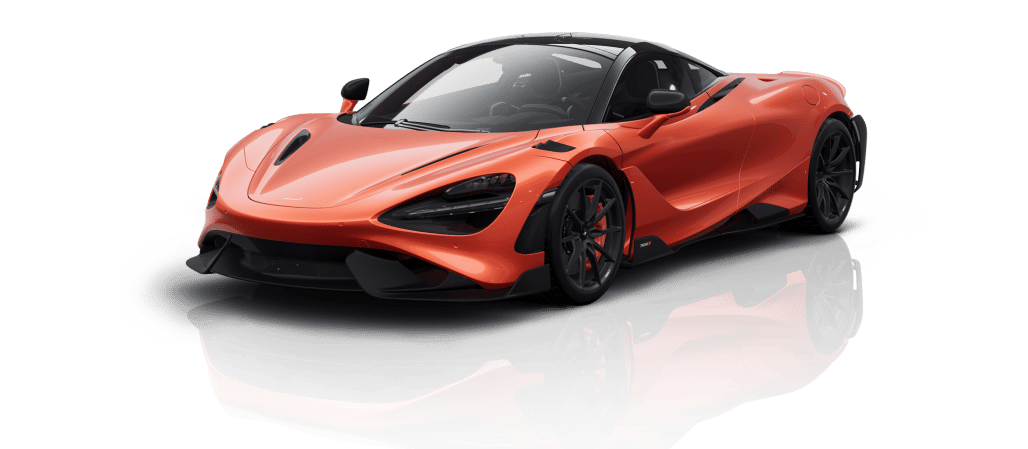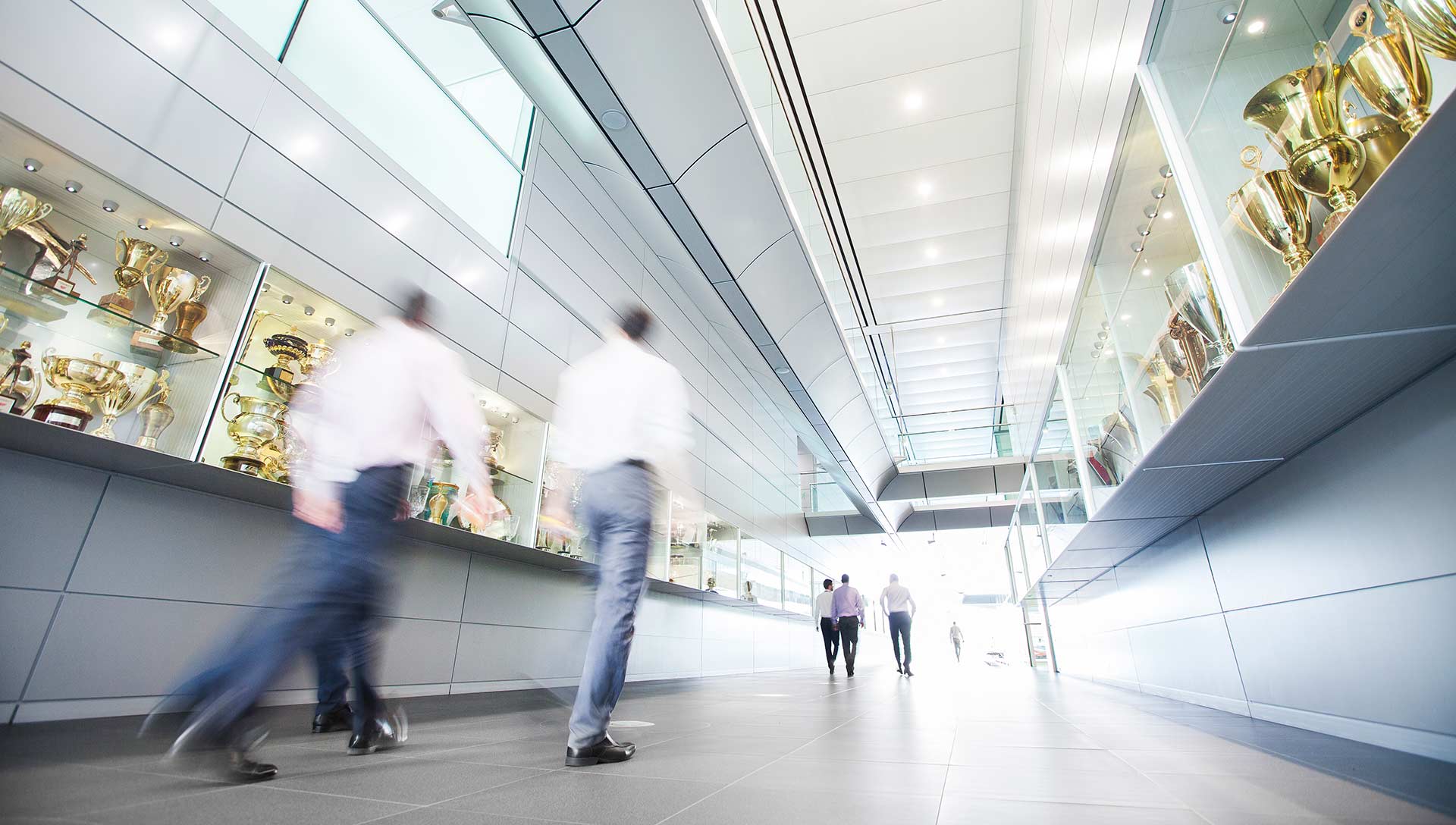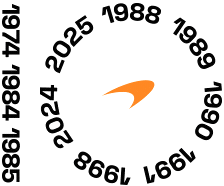
Dinner in the AM, breakfast in the PM: The Singapore GP's unique sleep schedule
Despite a seven-hour time difference, we work to BST time in Singapore. Here's how we manage it
Switching time zones is up there with some of the most challenging aspects of working and competing within Formula 1, but what if you were changing time zones yet sticking to a European schedule?
That's the case with the Singapore Grand Prix: the country is seven hours ahead of the UK, but the race will start at 20:00 local time, which is 13:00 back at the McLaren Technology Centre, so the team are actually working on UK time.
On paper, this might sound simpler – surely you continue as you were? Well, not quite. Consider some of the implications: your body is naturally attempting to adjust to its new surroundings – such as the sunlight and the time - and yet, you're telling it you need to sleep in the middle of the day with the sun blaring through the curtains?
Sounds challenging, right?

Of course, this is Formula 1, so there are all sorts of tips and techniques from the experts that the average person might not think of, but there are some much simpler solutions too. Hilton uproots its schedule to fit in around the race, providing breakfast in the PM and dinner 24 hours a day. The hotel started working on the plans as early as June, with preparations ramped up recently.
We made the trip to Singapore earlier in the week, with various members of the team travelling on Monday, Tuesday and Wednesday. One of those who made the trip was Sergio Steliano, the team's performance coach.
Front and centre of McLaren's efforts to combat the aforementioned challenges, Sergio will be a pivotal presence this weekend, taking care of the travelling team's health and wellbeing.
We caught up with him over some airplane food on the flight out to Singapore to learn more about Singapore's unique schedule.
"You're fighting your body's natural hormone responses to light," Sergio explains. "When we receive sunlight on the skin, our bodies are ready and primed to be active, but we want to do the complete opposite and go to sleep.
"In some ways, it's harder than the races where we have to fully transition to different time zones. Take Australia, where there is a big difference of 12 hours, but when you are there, you are gradually migrating to those new timings. Whereas in Singapore, we are trying to stay on UK time without our bodies naturally migrating, which is what our hormone response is wanting to do."
The heat and humidity in Singapore doesn't help, with ambient temperatures rarely dropping below 30 degrees and humidity of more than 80% - and that is at night-time. That's another area in which Hilton play their part, with room temperatures kept at an ideal temperature thanks to air conditioning. Although as Sergio explains, that doesn't completely solve the problem.
"There are two parts to this one," he continues. "The hotel is air-conditioned, and that helps. Studies show that rooms want to be around 18 to 21 degrees, any hotter or colder, and you're either sweating or shivering and struggling to sleep, so that is something we can manage.
"However, what is interesting is that when you're away from the room, and you're in the heat and humidity, you're becoming dehydrated, and so if you don't manage that correctly by monitoring your water intake, when you do try to sleep it will be disrupted because you're dehydrated.
"The way I describe it is like an indirect effect on your sleep - you're not sleeping in the heat, but the heat's going to impact your sleep because of what happens during the day."
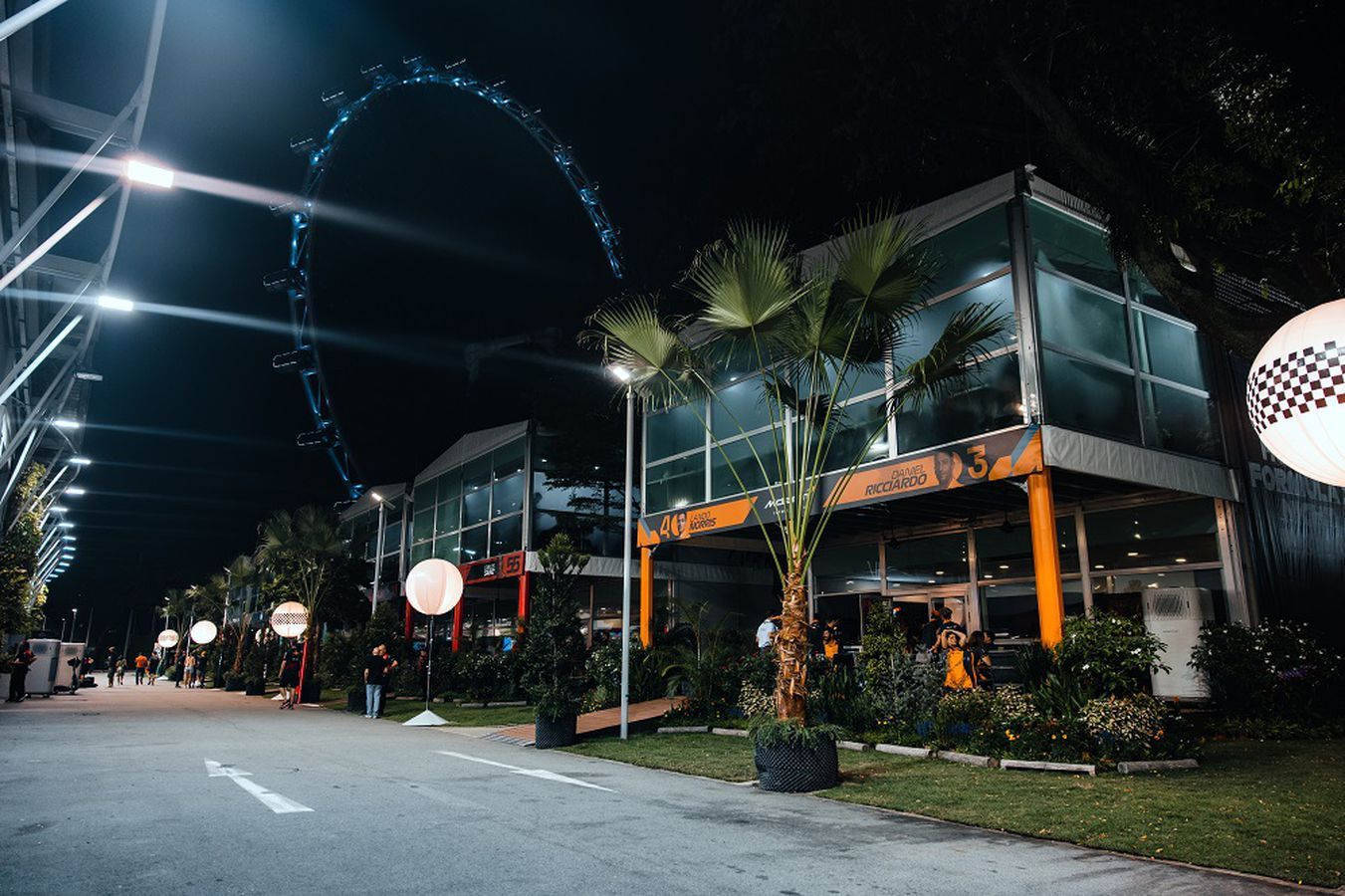
When it comes to performance, sleep-related hurdles are as crucial as any to overcome. F1 requires speed, so you will struggle if you wake up feeling sluggish and slow. That's what happens if we don't get any sleep, but when travelling to countries with such a stark difference in time, it's not always in our control.
Finding ways to hit that golden window of between seven- and nine-hours sleep can significantly affect reaction times and performance, not to mention its impact on mood and morale.
"Not getting appropriate sleep results in massive, massive impacts on our cognitive performance. Cognitive performance is your decision-making, reactions, mental processing, and physical performance. You wake up and feel awful, and you're not performing tasks as quickly as you usually would – everything feels laboured.
"Your mood can change massively if you are not sleeping properly. You can be super high one minute, then super low the next, or you can feel negative about things in general. That results in a vicious cycle of performing rubbish because you feel rubbish. The key thing, above everything else, is to get good sleep and the right amount of sleep."
But that's easier said than done, so how do the team manage?
Education is essential. The more seasoned travellers will have been made aware of the potential pitfalls and solutions in the past, but after three years without a Singapore Grand Prix, there are several newer members of the team who haven't been to the race. Meanwhile, those who have been before may not fully remember.
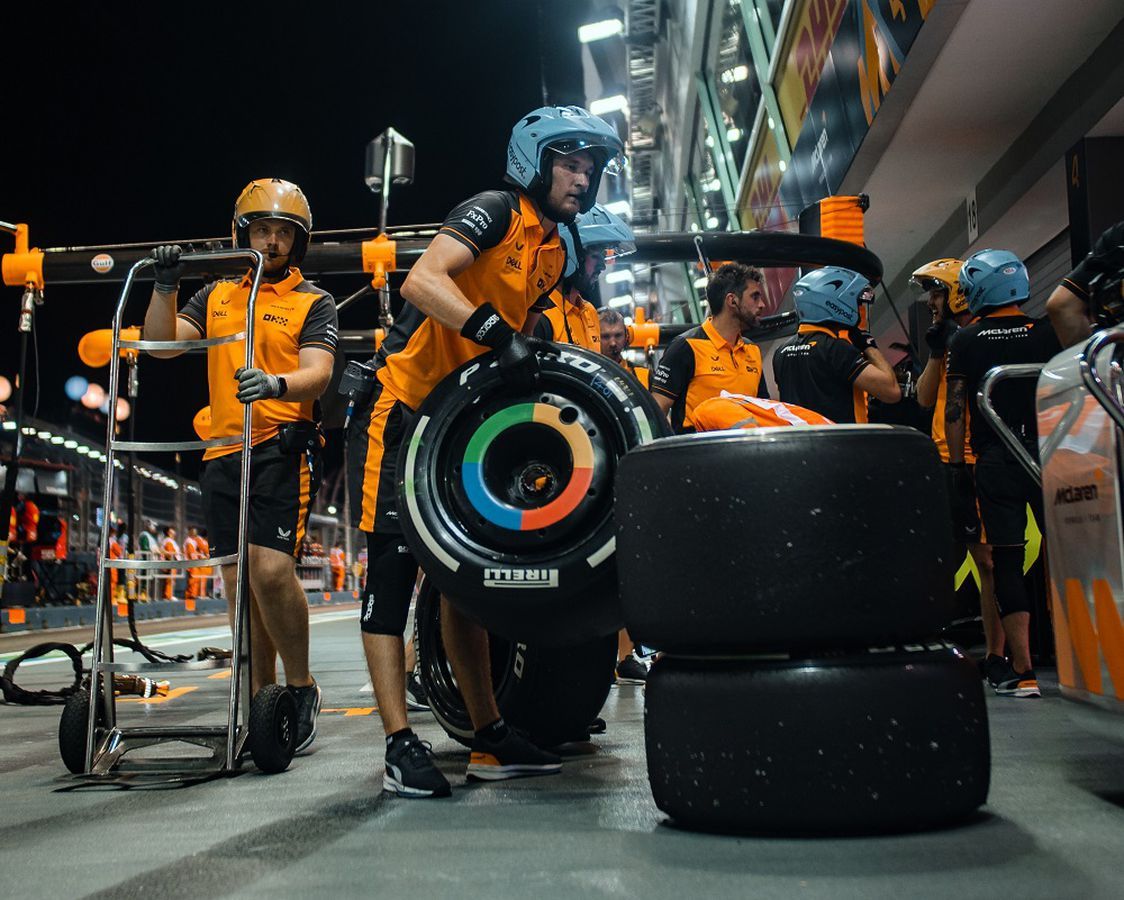
A lot of the solutions are the finer details that people wouldn't realise can have as significant an impact as they do. Avoiding caffeine and alcohol for a start while also ensuring you drink plenty of water.
Exercise also plays a role, with Sergio suggesting that a light walk or some steady cardio on a treadmill or bike can work surprisingly well. Using the days leading up to your flight as an adjustment period can also benefit you. But some people will always struggle more than others.
"A lot of it's down to individual differences," he continues. "In the same way I like coffee, you might hate coffee and prefer tea. There is no cookie cutter, one size fits all, so we put support mechanisms in place."
Hilton plays a key role in managing the finer details, and after checking in at the hotel in Singapore, we sat down for a chat with their Director of Food and Beverages, Berry Chua, to learn more.
"People are waking up at different times of the day than they normally would, but they still expect the same breakfast items that they would have if it were 07:00," Berry explains. "It makes us proud to be a part of this and to play our part. Having McLaren stay with us makes us very, very proud.
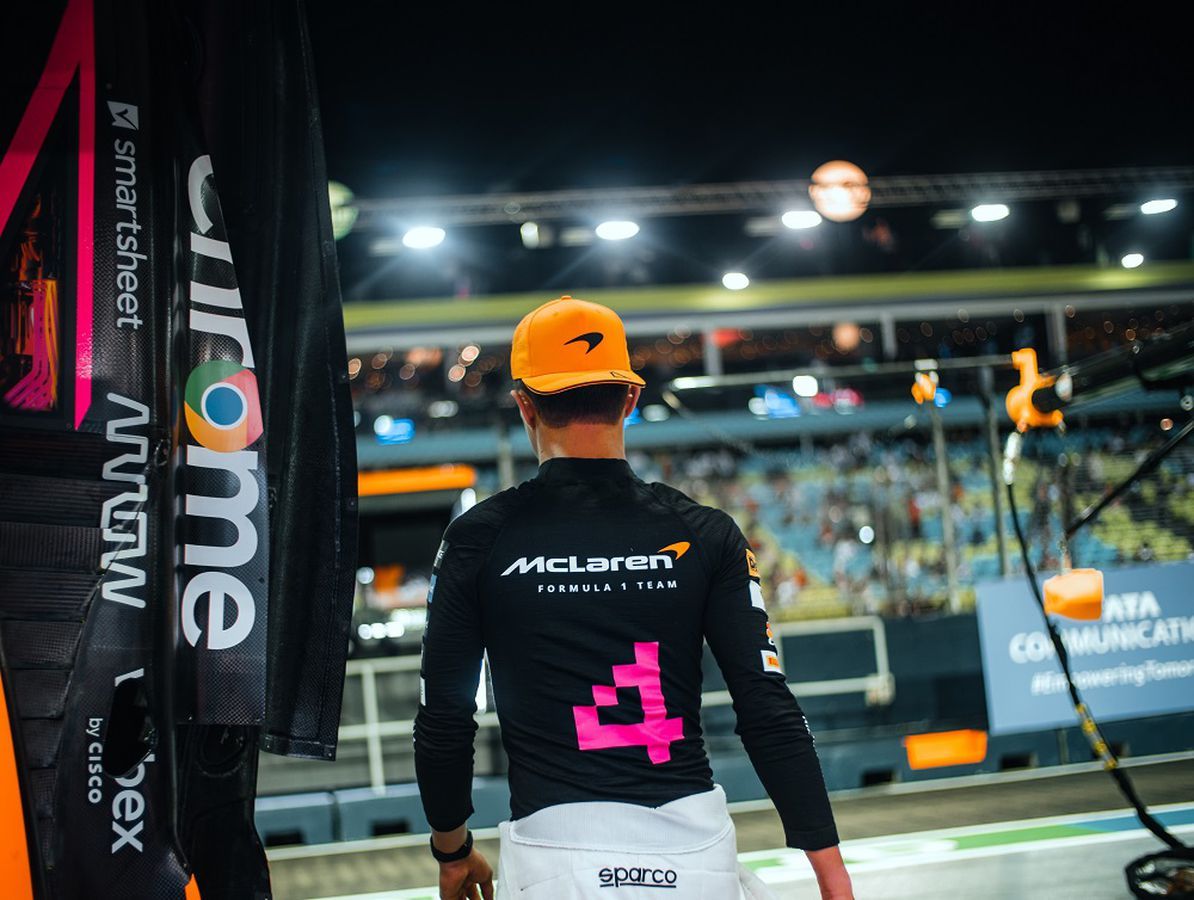
"The team are friendly, the drivers are really friendly, and they are all nice to work with. We have been serving McLaren for a few years now, and it is always great to see and meet the team at breakfast. They're friendly, and it makes us all really, really happy.
"We are serving items that the team enjoy because we believe that if they're eating food they love, they are happier and do their job better. That is why it is so important for the chef and me to plan the menu properly – especially breakfast."
Berry's point mirrors one Sergio had made during our conversation on the plane. "It affects circadian rhythm big time," Sergio says. "To explain, you have your sleep cycle, your 24-hour internal body clock, and your relationship between how you sleep and how you eat can really influence that.
"You can use what we term as feedings as opportunities to migrate your sleep pattern across. If we get up in the middle of the night and eat breakfast food, our body can counteract some of the hormones that kick in, such as serotonin and melatonin.
"A natural signal will be sent through our body as a cue to get up and get ready for the day, as opposed to having a bowl of pasta, which we would associate with the evening. That would have a negative impact, and we would start to feel sleepier. Subtle things like that can make a big difference because your body feels like it is working at the correct time, even though you are going outside into the dark."
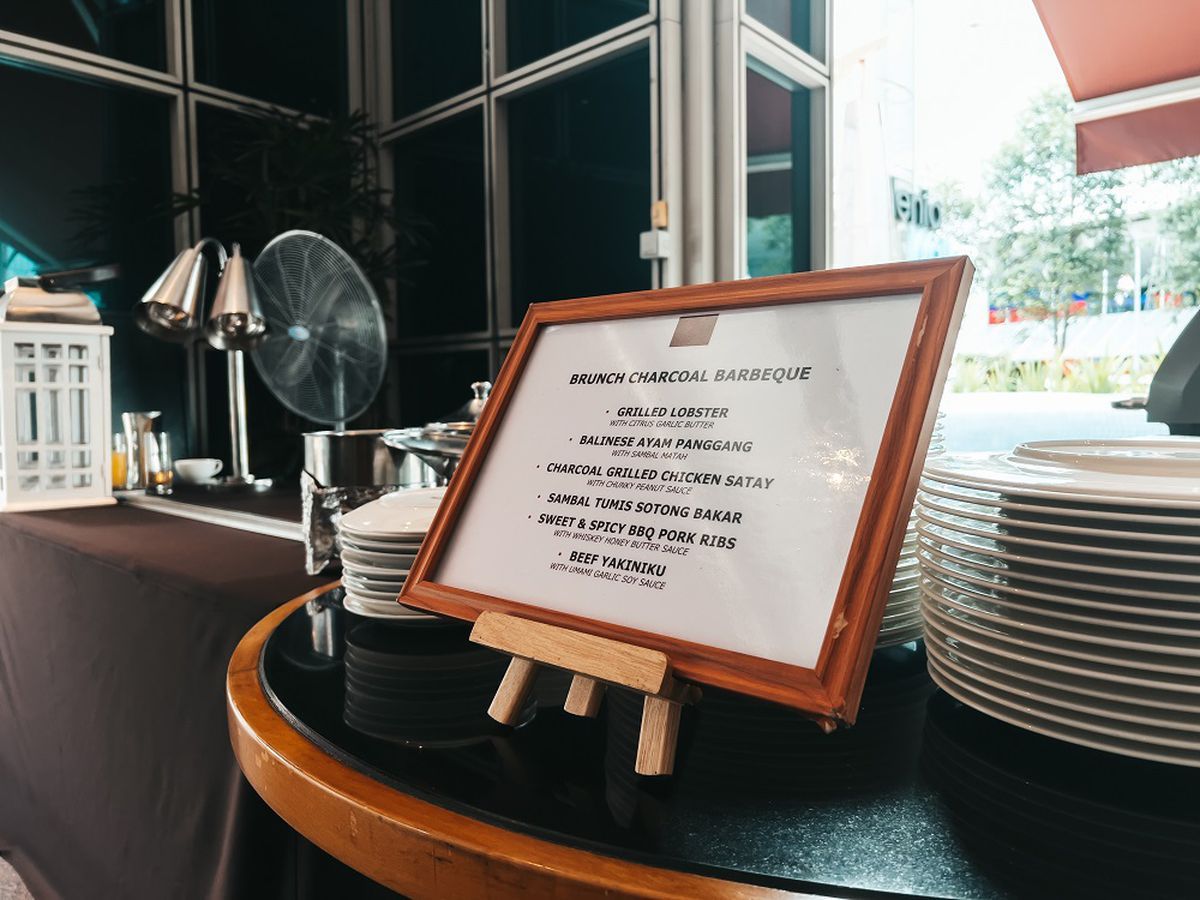
Breakfast food is standardised, with Hilton providing items your brain would typically associate with morning food. Dinner gives them a chance to be more experimental and creative and allows them to show off the local culture and cuisine.
Berry continues: "On the 24-hour menu that we have, Singapore Chicken Rice and Singapore Laksa are probably the two most localised dishes and our signatures."
"We try and highlight some of the local food that we have here because we know that it is a very short space of time that the team and the fans stay here, and so we try to accommodate some of the local favourites for people to try. As well as the team members from McLaren who are coming in, it is also important for us to do this for all of the hotel guests attending the Formula 1."
Don't forget that you can follow all of the action with LIVE coverage on the McLaren App.



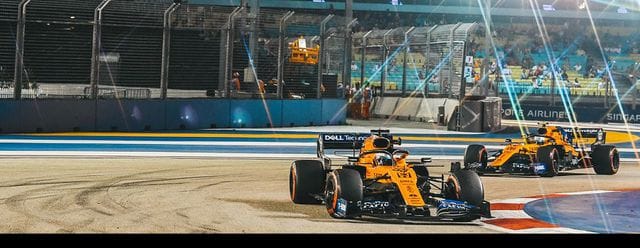
Why we're excited to return to Singapore and Japan
Five reasons why we are excited for the Formula 1 World Championship Singapore and Japanese Grands Prix to return
Everything you need to know for the Singapore Grand Prix - presented by OKX
Race preview for the 2022 Formula 1 Singapore Grand Prix. Hear from Lando Norris, Daniel Ricciardo and Andreas Seidl.
McLAREN Racing and OKX unveil special "Future Mode" livery to celebrate the return to Asia
The bespoke celebration livery will be carried on the MCL36 for Singapore and Japan
The McLAREN pop quiz: Singapore Grand Prix
McLaren Formula 1 quiz on the Singapore Grand Prix
Join the team
McLaren Plus is our free-to-join fan loyalty programme, bringing McLaren fans closer to the team with the most inclusive, rewarding and open-to-all fan programmes in motorsport.
Sign up now, or current members can amend their details in the form below if necessary.

